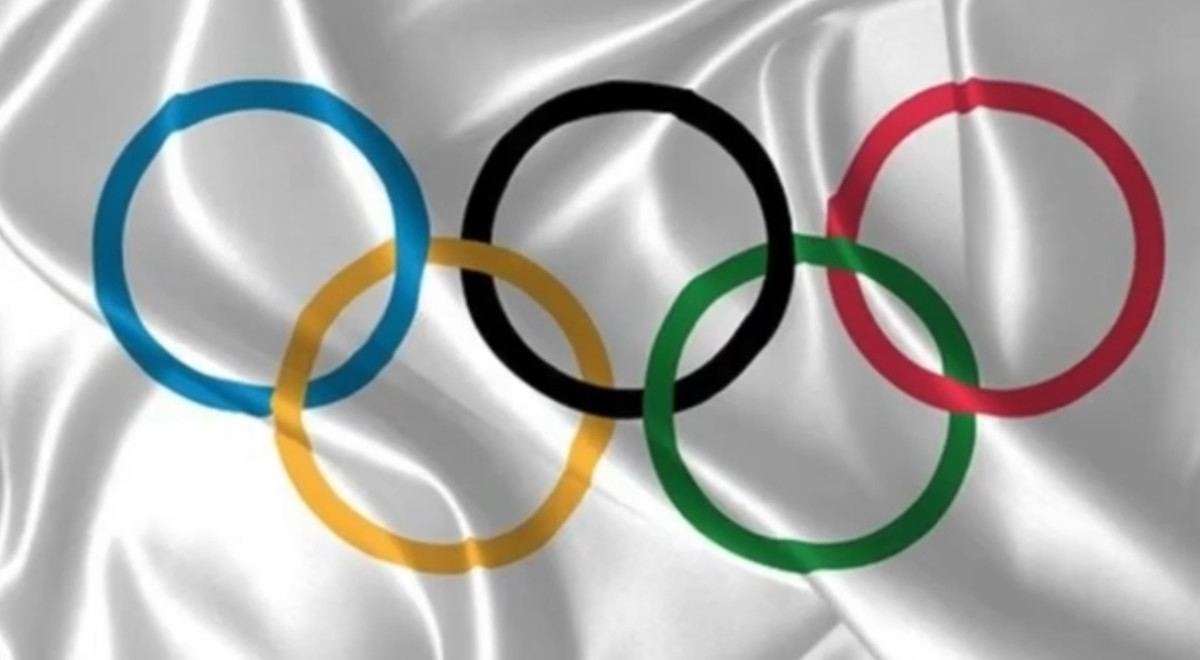What Sports Aren’t in the Olympics? A Comprehensive Overview
Contents
KEY TAKEAWAYS:
- Although the Olympics have many flaws, it’s difficult to dispute the Games’ selection of new sports in recent years. Five new sports will be added in 2028.
- The IOC sets three primary requirements for a sport when promoting it to the Olympics.
- Just five sports have been included in all 30 Olympic Games.

Photo: Olympic flag (screenshot youtube.com/@Sportsinformation)
Although the Olympics have many flaws, it’s difficult to dispute the Games’ selection of new sports in recent years. Since its addition in 2016, rugby sevens has always been popular. The value of golf has only increased. Surfing, sport climbing, and skateboarding have all been added to the Olympic program. Five new sports will be added in 2028: cricket, flag football, lacrosse, squash, and baseball. These additions are a part of the International Olympic Committee’s (IOC) push to include Olympic sports that are relevant to the host country, which in this case is the USA (Los Angeles).
Best Bookmakers for United States
In fact, one of the primary requirements the IOC sets for them when promoting a sport to the Olympics is whether it’s well-liked in the fictitious host nation. Logically. Whether the sport has sound and clear global governance is undoubtedly another criterion. And does it offer a fresh perspective is a third one. This raises the question of which sports might follow, starting with Brisbane in 2032.
This article examines some of the most well-liked sports disciplines that are oddly excluded from the Summer Olympics. So, here are five prospective Olympic sports for the future.
# 1 Chess
One of the most well-known board games in the world, chess requires a great deal of calculation and mental aptitude. It’s played on an 8×8 grid with 16 pieces on each of the white and black sides. This mental game has a long history; early chess texts date to the seventh century. More than 500 million people routinely play it now, both in person and online.
For a variety of reasons, the sport isn’t included in the Summer Olympics, despite a recent spike in interest. The most notable is that board games are excluded from the Olympics by the IOC because they need a different kind of athleticism than traditional Olympic sports. Even though playing chess requires cerebral effort and requires nothing in the way of infrastructure, it seems unlikely that the sport will be added to the Olympics anytime soon.
Sure, there’s effective global governance in chess. Including the world-famous cheating incident of 2023 between five-time world chess champion Magnus Carlsen and US grandmaster Hans Niemann (the latter was accused by Carlsen of cheating; the charges were dismissed) or Bobby Fischer vs. Boris Spassky (the match for the World Championship title in 1972 amid Cold War—Fischer accused Soviet players that they gain an unfair advantage by agreeing to short draws among themselves in tournaments; then he refused to show up on the opening ceremony as he wasn’t satisfied by the prize pool distribution), the Fédération Internationale des Échecs (FIDE) has supervised a century of sporadic chess mayhem.
In the fictitious host nation, is the sport well-liked? If Ahmedabad, India, is chosen to host the 2036 Olympics, for which it’s one of the contenders, the answer to this question is affirmative—the game itself may have originated during the Indus Valley culture.
Does chess offer a fresh perspective? Yes, figuratively, as the sole board game at the Olympics. Yes, in terms of the way of playing (more brain use than physical effort) as well. Whether the Olympics add anything fresh to the chess table is the more important question. There’s a chess equivalent of the Olympics—the Chess Olympiad, a biannual competition where teams fight to represent their countries.
| PROS | CONS |
| The way of playing, i.e., more brain use than physical effort. | Board games are excluded from the Olympics because they need a different kind of athleticism than traditional Olympic sports. |
# 2 Darts
A competitive dart-throwing sport that’s practiced all around the world, darts is frequently seen and practiced at bars and pubs. In this sport, two or more players toss small, pointed darts at a round target; the location of each dart’s hit determines how many points are awarded. Records of the sport date back to the 14th century, and its popularity soared after it was permitted in bars. The Professional Darts Corporation (PDC) is largely in charge of overseeing a number of international dart competitions, including the World Darts Championship, World Grand Prix, and Premier League as of 2024.
Darts hasn’t yet been included in any Summer Olympic Games, despite the fact that supporters frequently advocate for its inclusion because of its competitive nature and low infrastructure requirements. Many think that the sport’s reputation as a pub game is the reason it isn’t as well-known as traditional Olympic sports. Nevertheless, the World Darts Federation (WDF) is always submitting applications to the IOC to include darts, with the goal of making it an Olympic sport by the 2032 Summer Olympics in Brisbane.
Australia is one of the top four nations where darts gained huge popularity, with several outstanding players, such as Simon Whitlock, who was the first Australian to win a PDC major (the 2012 European Championship). So, attempts to squeeze the sport into the Brisbane Olympics might not be without grounds.
Does darts have a governing body on a global level? It does. Along with the PDC, the World Darts Federation (WDF) is the organization that oversees the sport and organizes darts tournaments. The year 1974 is when it was established. In addition to holding continental tournaments, the WDF hosts a world championship known as the WDF World Cup. WDF began hosting the WDF World Darts Championship in 2022.
What would darts bring new or exciting to the Olympic Games table? A new degree of consistency in aim, hand-eye coordination, and muscle control is needed to hit the dartboard and accumulate points, even though similar abilities and discipline are needed to consistently pinpoint your target with a rifle or bow and arrow—which is incorporated in sports that are already a part of the Olympic Games. Darts is thrilling. It requires a great deal of talent. It’s very exciting. Darts ought to be an Olympic sport, like many other brain-based games and precision sports. The darts table may not get anything particularly noteworthy from the Olympics, though. Nothing currently compares to the prominence of the World Cup when it comes to darts.
| PROS | CONS |
| A new degree of consistency in aim, hand-eye coordination, and muscle control. | Sport’s reputation as a pub game. |
# 3 Roller Skating
Wearing shoes with wheels is what allows roller skaters to move over surfaces. Roller skaters can use these wheels to participate in a variety of disciplines, each with its own set of rules and skills, including figure skating, roller hockey, speed skating, and roller derby. In the 1700s, roller skating first appeared as a dancing style, but it soon gained acceptance in the sports community. Nowadays, roller skating is a well-known pastime, with people all over the world doing it for enjoyment and travel. With more than 130 national federations, World Skate is one of the many regulating bodies for the popular professional sport (we’ll get back to that in a bit).
It’s strange that the non-ice version of skating isn’t already featured in the Olympics, given its resemblance to ice skating, a long-standing Olympic sport. Even though regulatory organizations tried, the sport never took off, even though it was a demonstration sport at the 1992 Summer Olympics in Barcelona. That’s when roller hockey was played. Since roller skating includes a variety of disciplines, it’s difficult to identify a single format that may be used at the Olympics. Nonetheless, many people think that roller skating’s future in the Olympics is bright as skateboarding, another roller activity, has returned for the 2024 Summer Olympics in Paris. Athletes from all over the world may demonstrate their abilities in a variety of new individual and team competitions in roller skating, thanks to its numerous forms and sub-sports.
Is there effective global governance in the sport? Although roller sports encompass a wide range of disciplines, they all benefit from the fact that skateboarding is already supervised by World Skate, its regulatory body, during the Olympics. The Fédération Internationale de Roller Sports (FIRS), which was established in 1924, was succeeded by this organization. Twelve different forms of skating, ranging from artistic skating to skate cross, are governed internationally by World Skate. The World Skate Games, which include all roller sport disciplines under World Skate’s jurisdiction, have been held every two years since 2017. Eleven disciplines are represented in the World Skate Games, a multisport competition.
In the fictitious host nation, is the sport well-liked? Yes, provided Santiago’s bid to compete in the 2036 Olympics is approved. Chile has won two medals in artistic roller skating, one in roller hockey, and as many as 24 in roller speed skating in the Pan American Games.
Does roller skating offer a fresh perspective? It’s a lot to ask of roller sports, which typically do better as participant sports than spectator sports, to do what speed skating and figure skating competitors do in the Winter Olympics. However, they might be interesting as one-off events where graceful dance teams or artistic roller skaters perform complex dance patterns while skating to well-timed music or freestyle skaters perform jumps and spins. There would be something for everyone when you combine that pace with field hockey teams, who already have their place in the Summer Olympics.
| PROS | CONS |
| It might be interesting as a one-off event | It encompasses a variety of disciplines, making it difficult to identify a single format that may be used at the Olympics |
# 4 Cue Sports
The term “cue sports” refers to a broad range of skill-based games in which billiard balls are struck with a cue, causing them to move around a table covered in fabric and surrounded by cushions, which are elastic bumpers. Although this phrase has more specific meanings in different English dialects, cue sports are also collectively referred to as billiards. Within cue sports, there are three main game categories: snooker, pocket billiards (also known as pool), and carom billiards. Since its inception in the 15th century in England, pool has had a lengthy history. Since 1893, the cue games that have been referred to as sports have been played in regulated international professional competitions.
Cue sports have a lengthy history and a sizable global fan base. Despite their popularity and the high level of talent required to play, they have yet to qualify for the Olympic Games. The movement to include cue sports in the Olympics isn’t a recent development. For many years, governing organizations like the World Pool-Billiard Association (WPA) and the World Professional Billiards and Snooker Association (WPBSA) have been pushing for their inclusion.
The IOC’s 1998 approval of the World Confederation of Billiards Sports (WCBS) was a major step toward Olympic participation. Since it made it possible for cue sports to be considered for inclusion in the upcoming Olympic Games, this recognition was a significant turning point. Cue sports, however, haven’t yet been incorporated into the official program despite numerous attempts. The perception of cue sports is a major obstacle. Billiards may not be seen by some as a competitive sport but rather as a leisure activity.
Another obstacle has been the decentralized governance of cue sports, which answers whether the sport has sound global governance. Cue sports are regulated by several organizations, each of which is in charge of a distinct discipline, in contrast to other sports that have a single, cohesive body. Attempts to make a coherent case to the IOC may be hampered by this fragmentation. Nonetheless, these organizations have been working together more recently, which is encouraging for upcoming bids. Considering the enormous number of games that fall under the purview of the WCBS, the coordination of its activity is commendable, separating it as the main governing body for cue sports.
In the fictitious host nation, is the sport well-liked? Although it would be oversimplified to claim that cue sports are popular everywhere bars are found, an astounding 20 different nations have won medals in them at the World Games.
Does it offer a fresh perspective? Indeed, it’s a unique sport that has two events that may make for interesting television: one in the Commonwealth (snooker) and one in the United States (pool). Cue sports demand a high degree of accuracy, talent, and strategy. Professional athletes train for years to improve their skills and strengthen their minds. It’s an intriguing sport to watch and study because of the game’s depth and complexity. Olympic participation would draw attention to these features and improve the sport’s standing on a global level.
| PROS | CONS |
| It demands a high degree of accuracy, talent, and strategy | The perception of cue sports as a leisure activity rather than a competitive sport |
| – | The decentralized governance |
# 5 MMA
The full-contact fighting sport known as mixed martial arts (MMA) is founded on grappling and striking and incorporates tactics from a variety of international combat sports. Numerous inter-stylistic competitions were held throughout Japan and the East Asian nations in the early 20th century. Vale tudo, a fad that emerged in Brazil at the same time, was characterized by unrestrained battles involving many disciplines, including judo, Brazilian jiu-jitsu, catch wrestling, luta livre, Muay Thai, and Capoeira. The year 1951 saw the first notable mixed-style fight.
The Ultimate Fighting Championship (UFC) promotion company was founded in 1993. It hosted a competition with virtually minimal regulations in an effort to mimic mixed competitions found in Brazil and Japan. Later on, they would adopt a new set of regulations that were different from those of other leagues that supported more realistic, street-like combat.
The word “mixed martial arts” was first used in writing in 1993. Initially marketed as a challenge to determine which martial arts were best for actual unarmed combat, contests with little regulations pitted fighters of various schools against one another. Multiple martial arts were later combined into the style of particular combatants. In order to improve competitor safety, adhere to sports laws, and raise the sport’s general acceptance, MMA promoters were under pressure to enact new rules. Since these modifications, the sport has grown in popularity and now has a pay-per-view industry that’s comparable to those of professional wrestling and boxing.
Now, MMA lacks an international governing body, which is the main reason it isn’t accepted by or advised for the Olympic Games. Numerous organizations all over the world hold mixed martial arts events and bouts, but they all follow their own set of guidelines and have distinct affiliations. There isn’t a single entity that oversees all of those organizations and establishes a fundamental set of guidelines. All other national organizations must be associated with an international regulatory body for mixed martial arts to be an Olympic sport. As the global governing organization but only for amateur mixed martial arts, the International Mixed Martial Arts Federation (IMMAF) was established in 2012. In addition to supporting the expansion of regulation and sport safety worldwide by helping nations create federations where none already exist, IMMAF acts more as a democratic center for national MMA federations. Additionally, the United World Mixed Martial Arts (UWMMA) organization was established in 2019 and makes the false claim that it’s the global regulatory body for professional mixed martial arts.
The fact that the recovery time takes longer for fighters after a fight poses another reason for MMA’s distance from an Olympic movement. Fighters frequently struggle to walk for a few steps when they wake up the next day and then hobble around. It might take weeks or months for fighters to feel normal again, even if they aren’t injured. They get sore and swollen hands, feet, and elbows from hard-striking competitions. To make sure they are completely recovered and ready for the next fight, many fighters actually try to recover for at least 30 to 90 days in between bouts.
The third and last reason is that there aren’t many MMA practitioners. You must understand that although the majority of people may be able to watch mixed martial arts, there are uncountable nations where people are unable to learn the sport, much less take part in any kind of match. Simply put, the Olympics wouldn’t include a sport in its program if the vast majority of the competing nations couldn’t send athletes.
We already answered to the question of whether the sport has sound global governance or not.
In the fictitious host nation, is the sport well-liked? If we talk about the Brisbane Olympics, Australia ranks fifth among nations where MMA is most popular. If we talk about 2036, in case Montreal’s and Toronto’s joint bid gets accepted, it makes sense that MMA finds its way to the Olympic Games given that Canada fares as the sixth-ranked nation for the sport’s popularity.
Does MMA offer a fresh perspective? Physical superiority is the most straightforward way to defeat a rival. These guys (and ladies) will always excel in MMA and justify their roles as favorites on MMA betting websites in their matches. Despite being a traditional combat and Olympic sport, boxing has restrictions. Other than a little clinch work, the fighters are unable to grapple. Fighters are allowed to employ elbows, knees, kicks, and punches in mixed martial arts. The ultimate individual sport is what mixed martial arts is.
| PROS | CONS |
| Emphasizes physical superiority. | Lacks an international governing body. |
| It has no in-fight restrictions. | A fighter’s recovery time takes a long. |
There Were 9 Sports at the Beginning of the Olympics
Since its inception in 1896, the Olympic Games have featured around 50 summer sports, including long-discontinued ones like tug-of-war and motorboating. There were nine sports at the beginning of the Olympics.
Athletes competed in 329 events and 32 sports at the Olympics in Paris this year. That was over three times as many sports as were offered at the first modern Games, which were hosted in Athens 128 years ago. The newest addition to the summer schedule was breaking, or elite breakdancing, which joined sport climbing, surfing, and skateboarding, three other unconventional sports that were first offered at the 2020 Tokyo Olympics.
Just five sports have been included in all 30 Olympic Games: gymnastics, swimming, athletics, cycling, and fencing. Others, like karate and croquet, were dropped right after their debut and have relatively shorter Olympic histories. Archery, golf, rugby, and tennis are among the sports that have had significant resurgences over time. These four were first used in the early years of the Games, but they were not used again for over 50 years.






